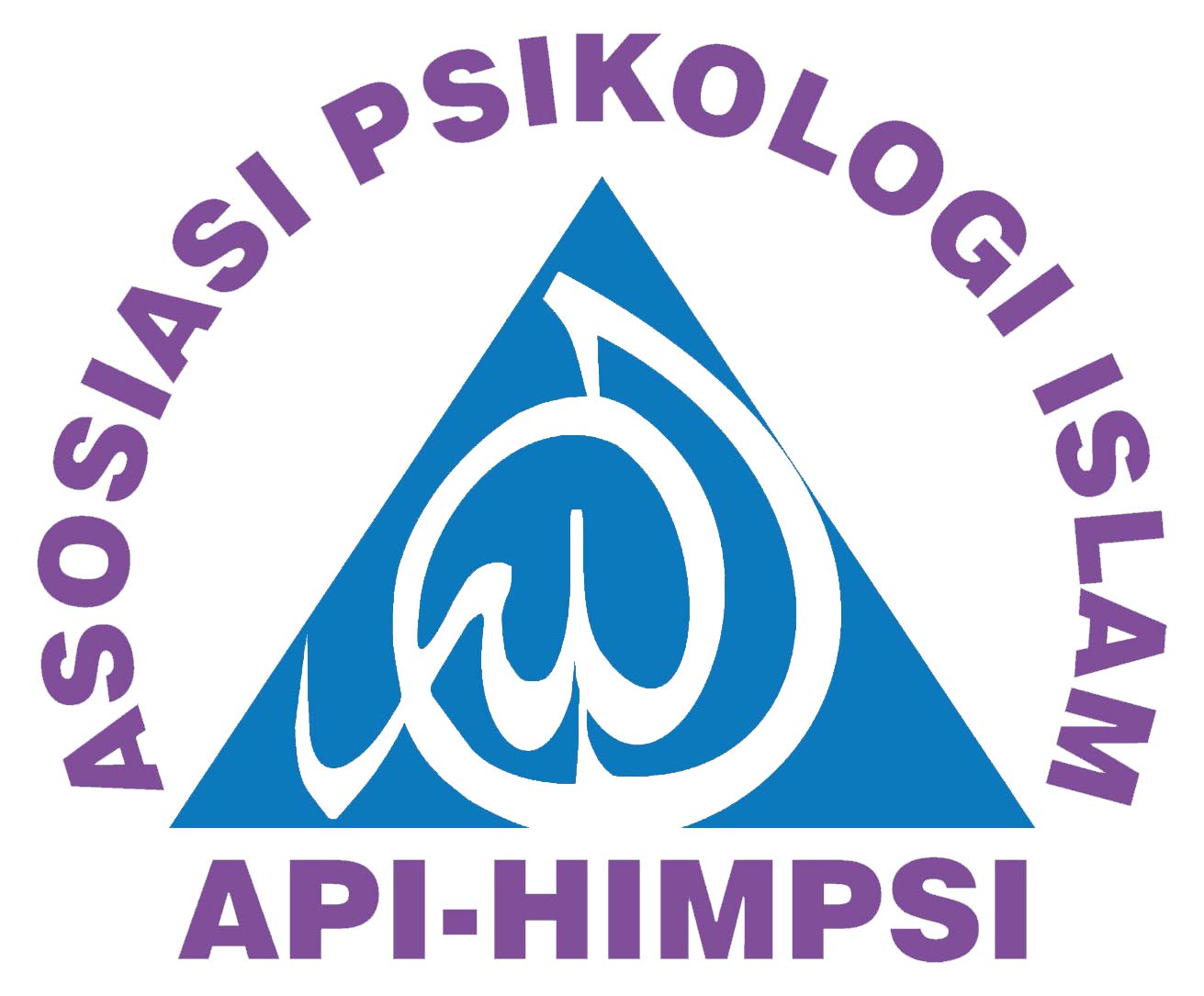Self Regulation Santri Penghafal Alquran Usia Sekolah Dasar
DOI:
https://doi.org/10.15575/jpib.v3i2.9013Keywords:
Self Regulation, Alquran memorization, Elementary School AgeAbstract
References
Adipura, K., Yuniarrahmah, E., & Akbar, S. N. (2013). Perbedaan regulasi diri dalam belajar pada siswa kelas akselerasi dan siswa kelas reguler di Banjarmasin. Jurnal Ecopsy, 1(3), 3–5. http://dx.doi.org/10.20527/ecopsy.v1i3.497
Akbar, A., & Ismail, H. (2016). Metode tahfidz al-qur’an di pondok pesantren kabupaten Kampar. Jurnal Ushuluddin, 24(1), 91–102. http://dx.doi.org/10.24014/jush.v24i1.1517
al Maududi, A. A., Mujahidin, E., & Hafidhuddin, D. (2014). Metode tahfizh al-qur’an bagi pelajar dan mahasiswa. Ta’dibuna Jurnal Pendidikan Islam, 3(1), 1–15. http://dx.doi.org/10.32832/tadibuna.v3i1.568
Anindyta, P., & Suwarjo. (2014). Pengaruh problem based learning terhadap keterampilan berpikir kritis dan regulasi diri siswa kelas V. Jurnal Prima Edukasia, 2(2), 209–222. https://doi.org/10.21831/jpe.v2i2.2720
Anwar, K., & Hafiyana, M. (2018). Implementasi metode ODOA (one day one ayat) dalam meningkatkan kemampuan menghafal al-Qur’an. Jurnal Pendidikan Islam Indonesia, 2(2), 181–198. https://doi.org/10.35316/jpii.v2i2.71
Atabik, A. (2014). The living qur’an: Potret budaya tahfiz al-qur’an di nusantara. Jurnal Penelitian, 8(1), 161–178. http://doi.org/10.21043/jupe.v8i1.1346
Boeree, C. G. (2010). Personality theories: Melacak kepribadian anda bersama psikolog dunia (Edisi Baru). Ar-Ruzz Media.
Buckner, J. C., Mezzacappa, E., & Beardslee, W. R. (2009). Self-regulation and its relations to adaptive functioning in low income self-regulation and its relations to adaptive functioning in low income youths. American Journal of Orthopsychiatry, 79(1), 19–30. https://doi.org/10.1037/a0014796
Chairani, L., & Subandi, M. A. (2010). Psikologi santri penghafal al-Qur’an; Peranan regulasi diri. Pustaka Pelajar.
Colman, R. A., Hardy, S. A., Albert, M., Raffaelli, M., & Crockett, L. J. (2006). Early predictors of self-regulation in middle childhood early predictors of self-regulation in middle childhood. Faculty Publications, Department of Psychology, 421–437. https://doi.org/10.1002/icd.469
Fauziyah, A., Ulfiah, & Hidayat, I. N. (2018). Efektivitas metode tamyiz terhadap memori dalam mempelajari alquran pada santri pondok pesantren quran. JPIB : Jurnal Psikologi Islam dan Budaya, 1(1), 37–52. https://doi.org/10.15575/jpib.vlil.2070
Ghufron, M. N., & Risnawita, R. (2010). Teori-teori psikologi. Ar-Ruzz Media.
Herawaty, Y., & Wulan, R. (2013). Hubungan antara keberfungsian keluarga dan daya juang dengan belajar berdasar regulasi diri pada remaja. Jurnal Psikologi, 9(1997), 138–147. http://dx.doi.org/10.24014/jp.v9i2.176
Husna, A. N., Hidayati, F. N., & Ariati, J. (2014). Regulasi diri mahasiswa berprestasi. Jurnal Psikologi Undip, 13(1), 50–63. https://doi.org/10.14710/jpu.13.1.50-63
Marza, S. E. (2017). Regulasi diri remaja penghafal al-qur’an di pondok pesantren al-qur’an jami’atul qurro’ Sumatera Selatan. Intelektualita, 06(1), 145–160. https://dx.doi.org/10.19109/intelektualita.v6i1.1306
Miksza, P. (2012). The development of a measure of self-regulation practice behavior for begining and intermediate instrumental music students. Journal of Research in Music Education, 59(4), 321–338. https://doi.org/10.1177/0022429411414717
Minauli, I., & Butarbutar, I. (2011). Hubungan antara efikasi diri dan regulasi diri dalam belajar prestasi akademik mahasiswa. Jurnal Analitika, 3(2), 79–84. https://doi.org/10.31289/analitika.v3i2.748
Mu’min, S. A. (2016). Regulasi diri dalam belajar mahasiswa yang bekerja. Jurnal Al-Ta’dib, 9(1), 1–20. http://dx.doi.org/10.31332/atdb.v9i1.499
Muhopilah, P., Gamayanti, W., & Kurniadewi, E. (2018). Hubungan Kualitas puasa dan kebahagiaan santri pondok pesantren Al-Ihsan. JPIB : Jurnal Psikologi Islam dan Budaya, 1(1), 53–66. http://dx.doi.org/10.15575/jpib.v1i1.2071
Munawwir, A. W. (1997). Kamus al-munawwir arab-indonesia terlengkap (Edisi kedua). Pustaka Progressif.
Prastowo, A. (2019). Metode penelitian kualitatif dalam perspektif rancangan penelitian (Cet. II). Ar-Ruzz Media.
Qamariah, N., & Irsyad, M. (2016). Metode cepat & mudah agar anak hafal al-qur’an. Semesta Hikmah.
Rachmah, D. N. (2015). Regulasi diri dalam belajar pada mahasiswa yang memiliki peran banyak. Jurnal Psikologi, 42(1), 61–77. https://doi.org/10.22146/jpsi.6943
Raco, J. R. (2010). Metode penelitian kualitatif; jenis, karakteristik dan keunggulannya. PT Grasindo.
Rifa’i, A. (2018). Pendidikan tahfiz anak usia dini (Taud). Al Qalam: Jurnal Ilmiah Keagamaan dan Kemasyarakatan, 11(23), 113. https://doi.org/10.35931/aq.v0i0.6
Ruminta, Tiatri, S., & Mularsih, H. (2017). Perbedaan regulasi diri belajar pada siswa sekolah dasar kelas VI ditinjau dari jenis kelamin. Jurnal Muara Ilmu Sosial, Humaniora, dan Seni, 1(2), 286–294. http://dx.doi.org/10.24912/jmishumsen.v1i2.1463
Sugiyono. (2012). Metode penelitian pendidikan: kuantitatif, kualitatif, dan R & D. Alfabeta.
Sulaeman, B., Sahrani, R., & Monika, S. (2017). Intervensi self-regulation empowerment program untuk meningkatkan motivasi berprestasi mahasiswa non reguler di jurusan X universitas X. Jurnal Muara Ilmu Sosial, Humaniora, dan Seni, 1(2), 519–528. https://doi.org/10.24912/jmishumsen.v1i2.1468
Sulistyaningsih, Y. F. E., & Cahyani, B. H. (2011). Peran reinforcement dalam kemampuan regulasi diri siswa SD selama di kelas. Jurnal Spirit, 2(1), 1–13.
Susanti, R. (2015). Efektifitas Konseling realitas untuk peningkatan regulasi diri mahasiswa dalam menyelesaikan skripsi. Jurnal Psikologi, 11(2), 88–93.
Susianti, C. (2016). Efektivitas metode talaqqi dalam meningkatkan kemampuan menghafal al-qur’an anak usia dini. Tunas Siliwangi, 2(1), 1–19. https://doi.org/10.22460/ts.v2i1p1-19.305
Lukmawati, Tanjung, F., & Supriyanto, J. (2017). Al-qur’an itu menjaga diri: Peranan regulasi diri penghafal al-qur’an. Psikis-Jurnal Pskologi Islami, 3(2), 94–105. https://doi.org/10.19109/psikis.v3i3.1754
Ubaid, M. (2019). 9 langkah mudah menghafal al-qur’an. Aqwam.
Winata, H., & Friskilia S, O. (2018). Hasil belajar siswa Sekolah Menengah Kejuruan (Self regulated as predictors of student achievement at vocational high school). Jurnal Pendidikan Manajemen Perkantoran, 1(2), 37–44.
Zimmerman, B. J. (1989). A social cognitive view of self-regulated academic learning. Journal of Educational Psychology, 81(3), 329–339. https://doi.org/10.1037/0022-0663.81.3.329
Downloads
Additional Files
Published
Issue
Section
Citation Check
License
Authors who publish with this journal agree to the following terms:
- Authors retain copyright and grant the journal right of first publication with the work simultaneously licensed under a Creative Commons Attribution License that allows others to share the work with an acknowledgment of the work's authorship and initial publication in this journal.
- Authors are able to enter into separate, additional contractual arrangements for the non-exclusive distribution of the journal's published version of the work (e.g., post it to an institutional repository or publish it in a book), with an acknowledgment of its initial publication in this journal.
- Authors are permitted and encouraged to post their work online (e.g., in institutional repositories or on their website) prior to and during the submission process, as it can lead to productive exchanges, as well as earlier and greater citation of published work (See The Effect of Open Access).






